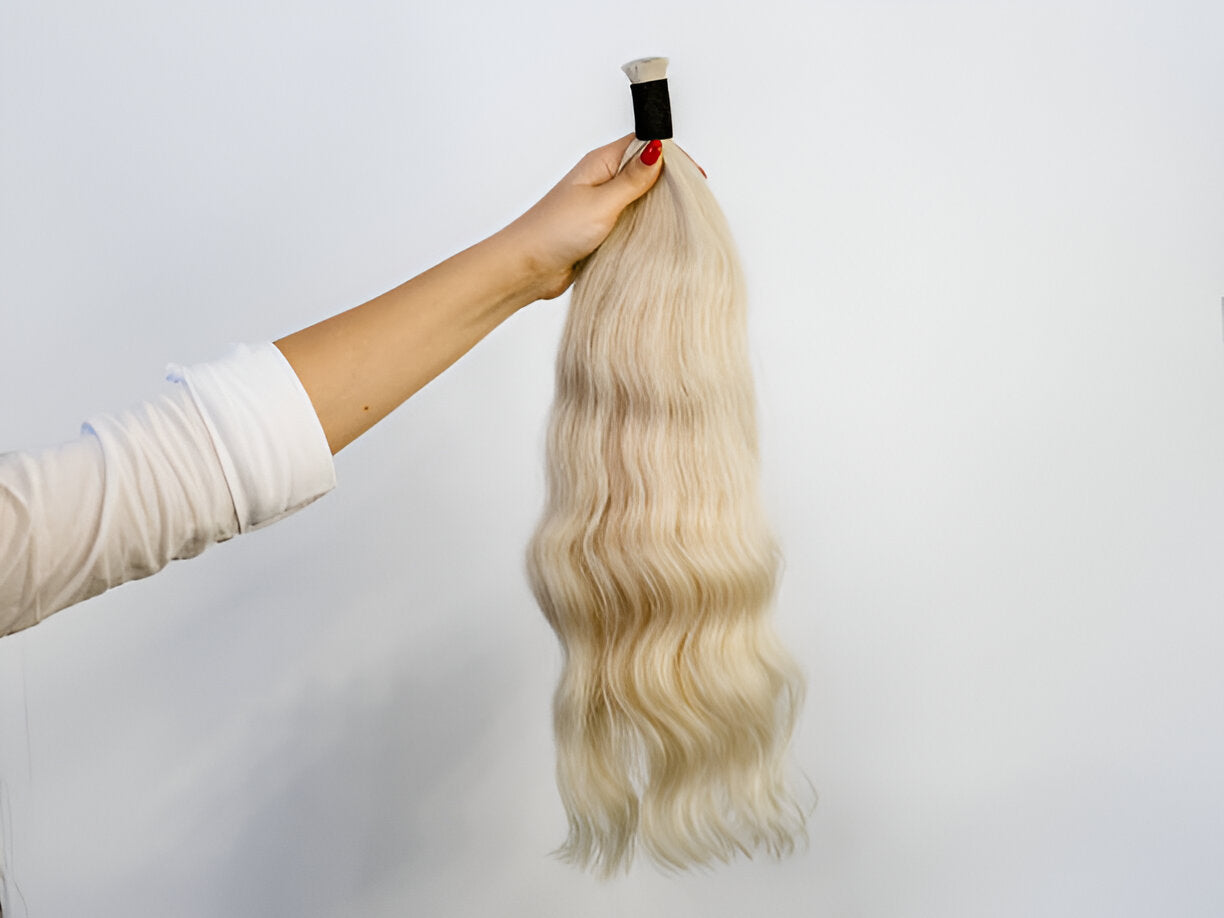When it comes to wigs, a common question is, which wigs last the longest? The durability and lifespan of a wig depend on several factors, including the type of hair used, how it's cared for, and the quality of the wig. This blog will explore various types of wigs, focusing on their longevity and durability. We'll also discuss the difference between synthetic and human hair wigs, including how long each type lasts and which is the longest-lasting human hair wig.
Which Wigs Last the Longest? A Detailed Guide
When searching for a new wig, a common question is, "Which wigs last the longest?" A wig's longevity depends on its material, care, and usage. In this blog, we'll explore the factors that affect wig durability and provide tips on how to make your wig last longer.
A wig's longevity is influenced by its type, construction quality, and care. Human hair wigs generally outlast synthetic ones due to their natural durability and versatility. Let's explore why and what you should consider when looking for a long-lasting wig.
Human Hair Wigs: The Gold Standard for Longevity
Human hair wigs are known for their natural look and feel. They can be styled, colored, and treated like natural hair. High-quality human hair wigs can last up to a year or even longer with proper care.
Types of Human Hair Wigs
- Virgin Hair Wigs: These are made from hair that has never been chemically processed, making them the most durable option. With proper care, they can last over a year.
- Remy Hair Wigs: These wigs have been processed to align the cuticles in the same direction, reducing tangling and extending their lifespan.
Synthetic Wigs: Affordable but Less Durable
Synthetic wigs are made from artificial fibers and generally have a shorter lifespan than human hair wigs. They are more affordable but usually last between 4 and 6 months with regular use.
Varieties of Synthetic Wigs
- Heat-Resistant Synthetic Wigs: These can withstand low heat levels, allowing for some styling flexibility. However, they are still less durable than human hair wigs.
- Standard Synthetic Wigs: These are the most common and economical option, but they do not handle heat and have a shorter lifespan.
How Long Do Synthetic Wigs Last? Evaluating Their Lifespan
Synthetic wigs typically last between 4 to 6 months, depending on their quality and how they are maintained. They are less expensive and require less maintenance than human hair wigs, but they do not offer the same level of durability.

Factors Affecting the Lifespan of Synthetic Wigs
- Heat Exposure: Synthetic fibers can be damaged by heat, so it's essential to avoid styling tools or heat sources.
- Proper Care and Maintenance: Gentle handling, washing with appropriate products, and adequate storage can extend the life of a synthetic wig.
- Frequency of Use: Wigs worn daily will wear out faster than those used occasionally.
What is the Longest Lasting Human Hair Wig? Top Choices
The longest-lasting human hair wigs are usually made from virgin hair, which has not been processed or treated. These wigs look natural and can last significantly longer than synthetic options.
Characteristics of Virgin Hair Wigs
- Unprocessed Hair: Virgin hair wigs are made from hair that has never been chemically treated, making them the most durable.
- Natural Look and Feel: They offer a realistic appearance and can be styled in various ways.
- Extended Longevity: With proper care, virgin hair wigs can last over a year, making them a worthwhile investment.
Care Tips for Prolonging the Life of Human Hair Wigs
- Routine Maintenance: Regular washing and conditioning with sulfate-free products help maintain the wig's quality.
- Avoiding Harsh Treatments: Limiting heat styling tools and chemical treatments can prolong the wig's lifespan.
- Proper Storage: To prevent damage, store your wig on a stand in a cool, dry place away from direct sunlight.
Key Considerations When Choosing a Long-Lasting Wig
Choosing a durable wig involves evaluating several factors, including hair type, quality, and lifestyle. Here's what to remember when selecting a wig that will last.

Quality of Construction
- Cap Design: The type of cap, such as lace front or full lace, affects the wig's comfort and longevity.
- Hair Density and Thickness: Higher hair density can contribute to a longer-lasting wig by reducing the stress on individual strands.
Care and Maintenance
- Regular Cleaning: Clean your wig by washing it regularly with appropriate products.
- Handling and Storage: Gentle handling and proper storage techniques can prevent tangling and maintain the wig's shape.
FAQs
Here are some FAQs regarding wig longevity:
How long do synthetic wigs last?
Synthetic wigs typically last 4 to 6 months with regular wear. However, the lifespan can vary depending on the quality of the fibers and how well they are maintained. High-quality synthetic wigs, when cared for properly, can last up to a year. To ensure longevity, avoid exposing the wig to heat and use products specifically designed for synthetic hair.
What is the longest-lasting human hair wig?
Human hair wigs are generally the longest-lasting type of wig. Regular wear can last over a year; occasional use and proper maintenance can last up to three years. Human hair wigs' durability comes from natural fibers, which can withstand styling, washing, and everyday use better than synthetic options. Investing in a high-quality human hair wig can offer a longer-lasting and more natural-looking solution.
How can I extend the life of my wig?
Proper care and maintenance are crucial to extending the life of your wig. Regularly clean your wig with gentle, wig-specific shampoos and conditioners to keep it free from dirt and oils. Avoid heat styling on synthetic wigs and use heat protectants on human hair wigs if you must use heat tools. Store your wig on a stand to maintain its shape and prevent tangling. Gentle handling and avoiding rough brushing or pulling will also help prolong your wig's lifespan.
Do human hair wigs require more maintenance than synthetic wigs?
Yes, human hair wigs generally require more maintenance than synthetic wigs. Similar to natural hair, human hair wigs need regular washing, conditioning, and styling. They are also more susceptible to damage from heat and environmental factors, so they require extra care and protection. On the other hand, synthetic wigs are lower maintenance and come pre-styled, retaining their shape after washing. However, they cannot be heat-styled, limiting your styling options.
Can I use regular hair products on my wig?
It's best to use products specifically designed for wigs to avoid damaging the fibers. Regular hair products, especially those with harsh chemicals, can damage synthetic and human hair wigs. Wig-specific products are formulated to be gentle and maintain the wig fibers' integrity. Using the right products can significantly extend the lifespan of your wig and keep it looking its best.
Conclusion
When choosing a wig, it's essential to consider the type of hair, quality, and maintenance requirements. Human hair wigs, particularly those made from virgin hair, offer the most extended lifespan and natural look but require more care. Synthetic wigs, while more affordable and more accessible to maintain, do not last as long. Understanding these factors can help you make an informed decision and ensure your wig investment lasts as long as possible.

